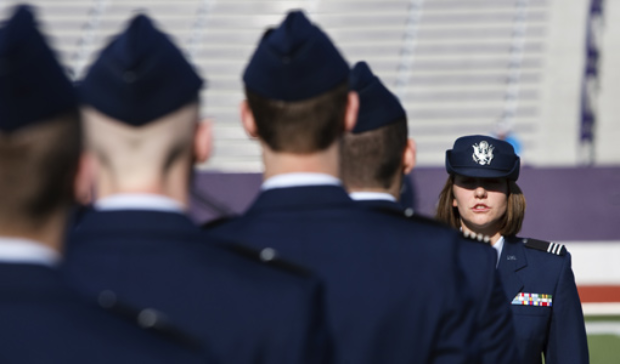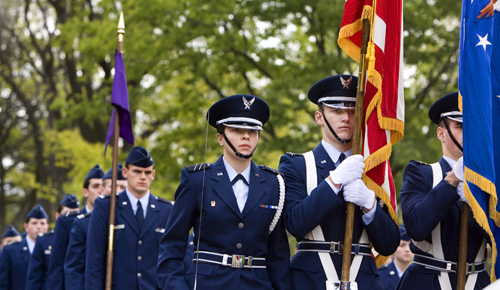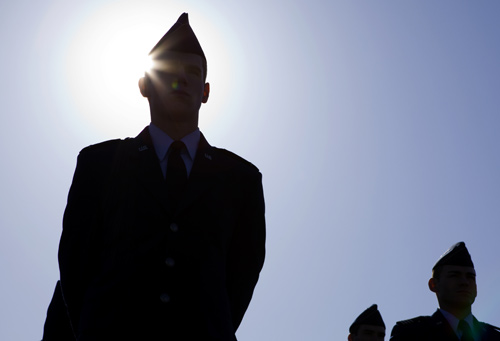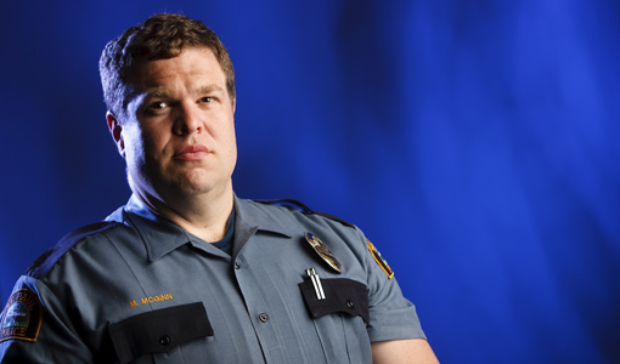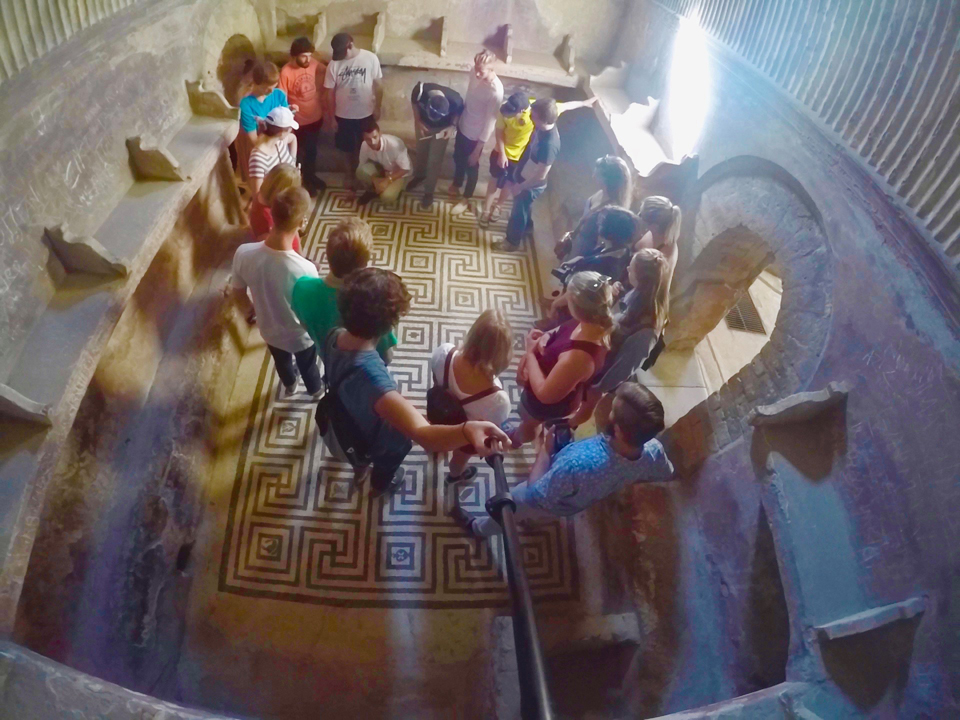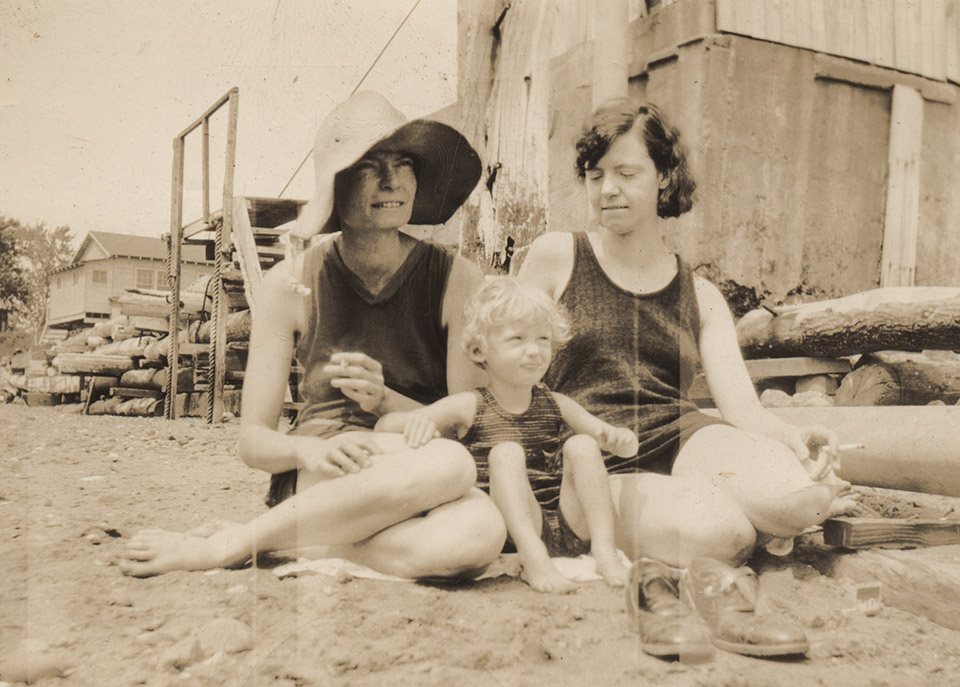The College of Arts and Sciences offers students a wide array of interesting majors and minors from which to choose. Whether students are intrigued by the working of the human mind and decide to major in psychology, enjoy literature as a way to help understand the world and major in English, or study human community through the lens of political science, to name but a few possibilities, CAS has a program of interest. In fact, the College has more than 75 major and 45 minor fields of study.
A list of the many available programs includes a minor in aerospace studies. This academic program is offered by the Air Force Reserve Officer Training Corps (AFROTC) program at the University of St. Thomas. Completion of this minor field of study is open to all UST students, but is required for the AFROTC cadet who wants to receive a commission as a second lieutenant in the U.S. Air Force upon graduation from St. Thomas.
The University of St. Thomas has been home to Air Force ROTC Detachment 410 since 1948, one year after the formation of the Air Force as a branch of the armed services. For 61 years, Air Force officers have joined with St. Thomas faculty in educating and preparing students for life in the military and beyond. Though programs exist at other universities, the AFROTC program at St. Thomas has long been a popular choice of future officers. This is likely due to the fact that St. Thomas and AFROTC are well matched. According to Lt. Col. Sylvia Taylor, the detachment’s commanding officer, the Air Force’s core values – integrity first, service before self, and excellence in all we do – dovetail with St. Thomas’ mission to educate students to be morally responsible leaders who think critically, act wisely, and work skillfully to advance the common good.
Students completing the aerospace studies minor take classes in Leadership Studies and National Security Affairs, among others. These courses complement, and are complemented by, the core curriculum courses that every St. Thomas student takes, including classes in history, social science, language, theology and ethics.
Like every student at St. Thomas, a student electing the aerospace studies minor must also complete a major field of study. The cadets are not limited in their choice of major and may select from the many options available. This is perhaps another reason why St. Thomas is so popular with students looking at AFROTC programs. Ultimately, they take advantage of the variety offered, majoring in biology, chemistry, computer and information sciences, history, political science, and criminal justice, among others, within the College of Arts and Sciences, as well as in engineering and business.
Upon graduating, the newly commissioned officers put their St. Thomas educations to good use in the career paths they choose within the Air Force. While some graduates become pilots, others opt for careers in intelligence, communications, air battle management, special investigations, logistics, contracting, personnel and public affairs. Their aerospace studies courses, their core courses and their major field courses have prepared them well for all these paths.
Service time in the Air Force varies, but one thing is certain. “We’re all going to eventually be civilians,” pointed out Lt. Col. Taylor.
Maj. Steve Gruber, the detachment’s unit admissions officer, has viewed the Air Force from the ranks of the enlisted and as a civilian high school teacher before earning his Air Force commission. He has seen how AFROTC skills can transfer to civilian life. “Those who are commissioned have a very balanced skill set that should make them absolutely highly sought-after employees after they leave the Air Force,” he said.
That was the case for AFROTC graduates Jason Pedersen ’05 and Christi Hoffmann Pedersen ’05. Jason, 28, from Cannon Falls, Minn., and Christi, 26, from Sioux Falls, S.D., both entered AFROTC as freshmen and earned their second lieutenants’ gold bars upon graduation. Following graduation, marriage a year later, and further Air Force schooling, they served as civil engineering officers at Mountain Home Air Force Base near Boise, Idaho, until April 2007.
The Pedersens faced limited opportunities to advance in rank while being stationed at the same base. In addition, opposite back-to-back overseas deployments that would separate the couple for close to a year and a half loomed on the horizon. When the Air Force began downsizing its civil engineering ranks, Jason and Christi opted for the early outs the Air Force was offering at the time.
The skills they learned in AFROTC soon were put to good use in civilian life. Eaton Corp. of Eden Prairie hired Jason as a product engineer. Target Corp. in Minneapolis hired Christi as asset lead for electrical and audiovisual.
“When you put ‘Air Force officer’ on a résumé, that catches a lot of attention,” Jason said. “A lot of people really look at that, which I didn’t realize until I got into the private world. … That definitely helped us, I think, because they knew the kind of people we’d probably be – structured, disciplined and driven.”
Christi felt the same. “My Air Force experience really helped me with presentation skills and thinking on my feet,” she said. “I also think that it really got me in the door at Target. It looks great on a résumé. I really don’t think that I’d be where I am right now without the ROTC background. I think the biggest thing that ROTC teaches you is to have confidence in yourself.”
Jason also pointed to public speaking, learning to work and gel with others, being out front, and leadership as ROTC skills he has found helpful. He is on the phone to India, China and Mexico nearly every day, “so I’ve got to be able to work with people and talk to them and meet with them, too.
“We did a lot of briefings,” he added. “I probably did 20 briefings while I was in ROTC, maybe more – and other off the-cuff, less-structured speaking situations – which I’ve seen are very strong skills to have in the private world.”
Jason also cited other skills that were developed in ROTC – volunteering, trying new things, being visible, looking for new opportunities, and leadership. “We were always taught in ROTC and active duty: You volunteer; you get out there. You don’t just sit at your desk and find your comfort zone,” he said.
These skills were not developed overnight. Cadets advance from the basics of character development to learning leadership and management skills over four years. The turning point for most cadets is field training, AFROTC’s version of basic training, typically attended at various Air Force bases during the summer following sophomore year. It is intensive and physical, and cadets are far removed from their comfort zones.
“It’s amazing the confidence that they have when they return from field training,” Taylor commented. “They walk back in here and you no longer see a kid – you see an adult.”
As for their educational experience back on campus, Jason reminisced about the engaging professor he had for freshman chemistry who taught his students so much (and who one day set the carpet on fire, requiring a building evacuation and a call to the fire department). Christi remembered fondly the thought-provoking debates in theology and English classes. Jason credited his St. Thomas education for honing his skills in writing, oral communication and critical thinking. Christi acknowledged learning much from fellow students from across the many different degree areas available at St. Thomas.
Jason summed up the feelings he and Christi share for the program: “I’d do it again in a heartbeat,” he said. “Definitely.”
Terry Langan contributed to this story.
Read more from CAS Spotlight
